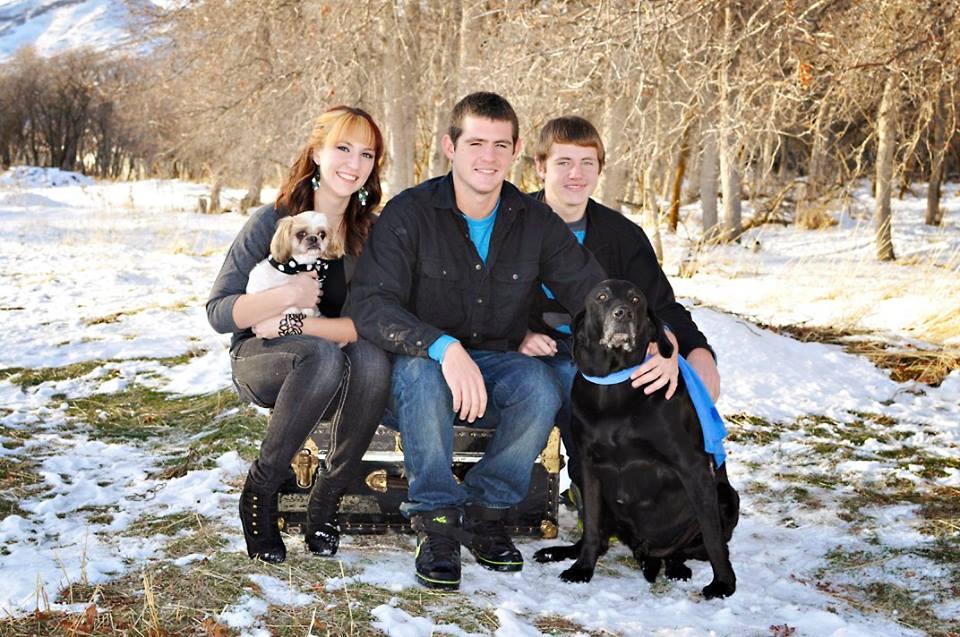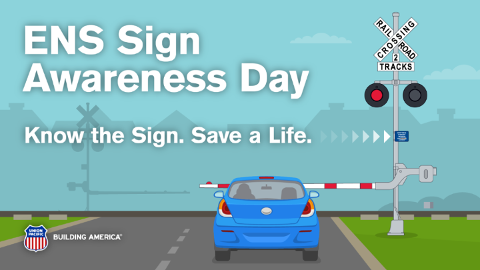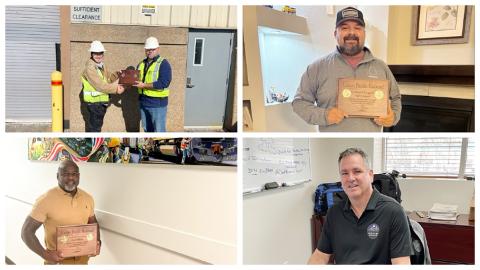Anthony Bourdain, Kate Spade, Robin Williams – the deaths of such notable figures put suicide in recent news across the globe. But suicide is more than a headline; it’s a tragedy that hits close to home.
Within three years, Shayla Slaymaker, Union Pacific senior specialist - Equal Opportunity Employment, lost two brothers – Chance, 14, and Travis, 26 – to suicide.
She remembers Chance as a gifted baseball player with the ability to light up a room; Travis, an avid sportsman, was incredibly creative. Behind their charisma was a cloud of severe depression.
“Looking back, I wasn’t good at talking with my brothers about their problems because I just wasn’t aware of what they were going through,” Slaymaker said. “People are very good at hiding how hurt they really are.”
Every 40 seconds a family member, friend, neighbor or co-worker takes their own life, according to Suicide Awareness Voices of Education. The organization's website says suicide now accounts for 123 U.S. deaths per day — a number that’s risen since 2005 — and suicides and drug overdoses recently became the seventh leading cause of death, surpassing diabetes.
“It’s sad to see how many people have been hurt by suicide,” Slaymaker said. “Not only those who have lost someone, but people who have struggled with it or attempted it.”
September 10 is World Suicide Prevention Day. Union Pacific supports the event each year, spreading awareness and reminding employees of the importance of taking action to prevent suicides. Operation RedBlock, a drug and alcohol prevention program; Union Pacific’s Peer Support volunteers, employees trained to help co-workers cope with difficult events; and Union Pacific’s occupational health nurses will speak with employees systemwide about suicide warning signs and available resources.
Union Pacific Senior Analyst-Healthcare Stephanie Mahaney, a Train, Engine and Yard Peer Support coordinator, said a big part of providing assistance is removing the stigma surrounding mental health diagnoses. Mental health, she said, is just as important as physical health.
“I think some want to call suicide cowardly or a selfish act,” she said. “I believe that is just human nature, trying to push blame instead of understanding the issue and the underlying factors.”
Mahaney explained that Peer Support volunteers offer employees someone who will listen to issues they may be dealing with, referring them to the National Employee Assistance Helpline (NEAHL) as needed. NEAHL helps employees find providers in their area and, if necessary, refers them to Union Pacific’s Employee Assistance Program.
During the first eight months of 2018, 1,241 Union Pacific employees and dependents used the EAP service for problems ranging from psychological and substance abuse to marital and critical incident counseling.
“The first thing an employee or dependent might tell us is that they are unsure if they are in the right place and they’ve never made a call like this,” said Rachael Patterson, an NEAHL supervisor. “This is where we play a vital role in helping start the process by reassuring them they have made the right decision by calling.”
While the helpline doesn’t provide counseling over the phone, Patterson said representatives will assess the situation and provide the resources needed.
“We will triage and stabilize until connecting someone with face-to-face services,” she said. “Part of the stabilization process can be speaking with a manager to add another layer of support.”
For those in crisis or who know someone at risk, please contact the National Suicide Prevention Lifeline, 800-273-TALK (8255), or UP's Employee Assistance Program (EAP), 800-779-1212.






